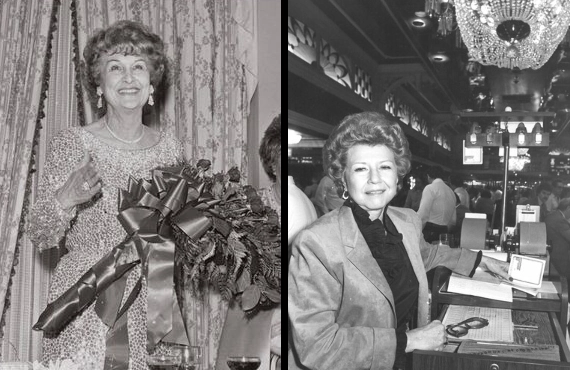Who Gambles the Most? A Look at Gender Differences in Gambling Habits

Did you know men are more likely to develop a gambling problem than women are? That might surprise you (or it might not), but why do dudes gamble more than the ladies, and why are they more susceptible to it turning into a problem? And are there any scientific or psychological reasons behind it?
Since men and women absolutely differ in their gambling habits, we wanted to see why! We’ll go over everything from the historical trends to the modern-day stats and the science that backs it up.
First up, we’ll look at the history of gambling to see how it all started and how gender roles have evolved. Then, we’ll unpack the latest stats to see who’s playing what games today. We’ll also look at all of the different types of gambling, why some are more popular with men, why women gravitate toward others, and the psychological and social factors that influence gambling habits. We’ll also examine just how marketing and advertising play their parts in influencing these behaviors. And to finish up, we’ll talk about how gambling addiction affects men and women differently.
So, let’s get going and see what makes men and the fairer sex different when it comes to gambling habits!
Historical Context
Gambling has always been around—it’s a mainstay in human culture, with its roots tracing back thousands of years. Throughout history, the roles of men and women in gambling have shifted dramatically, influenced by societal norms, economic conditions, and cultural attitudes toward genders.
Early Gambling Practices
In ancient civilizations, gambling was predominantly a male-only activity—no women allowed. Men were the primary participants in games of chance and skill, which were seen as tests of bravery, strategy, and luck.
| Ancient Civilization | Details |
|---|---|
Ancient Greece and Rome | In Ancient Greece, men participated in various gambling activities like dice games, where the outcome was believed to be influenced by the gods. Similarly, in ancient Rome, men engaged in games like “alea,” a precursor to modern dice games, and “tabula,” the early form of backgammon.
Women, on the other hand, were almost always excluded from these public gambling events. Social norms dictated that women’s roles were to be domestic, and their participation in gambling was limited to private settings or specific festivals where women were allowed to play games. |
Ancient China | While men took part in elaborate betting games and lottery systems, women were limited to simpler games like Keno, which were usually played at home. |
Medieval Europe | Gambling was a common pastime among knights and nobles, with tournaments and betting on jousting events being the most popular. Again, women’s involvement was minimal and typically limited to social gatherings where card games might be played among ladies of the court. |
This period also saw the introduction of regulatory measures against gambling, which were influenced by religious institutions that viewed gambling as sinful.
Changes over Time
The roles of men and women in gambling began to change in the 19th and 20th centuries notably—the Industrial Revolution and the subsequent urbanization brought with it new forms of entertainment, including gambling houses and casinos. These venues were, at first, male-dominated spaces where men gathered to gamble on card games, roulette, and horse racing.
During the early 20th century, the social dynamics began to shift again, as World War II played a pivotal role in changing gender roles as women took on jobs and responsibilities that were traditionally held by men. This included working in and visiting casinos. The post-war economic boom saw the rise of Las Vegas as a gambling mecca, attracting a diverse crowd, which included the ladies!

The feminist movement of the 1960s and 70s further accelerated the change in women’s roles in gambling. Women began to assert their presence in casinos and gambling events, challenging the traditional gender norms. Iconic figures like Judy Bayley and Claudine Williams emerged as trailblazers in the industry—Bayley became the first woman to own and operate a hotel-casino after her husband’s death, while Williams was the first woman inducted into the American Gaming Association’s Hall of Fame.
In recent decades, the gender gap in gambling has continued to narrow, and currently, women are actively participating in all forms of gambling, from casino games to online betting on gambling sites. The advent of online gambling has been extraordinary in this regard—online platforms provide a level of anonymity and convenience that has made gambling much more accessible to all, and that includes women.
Ladies now account for nearly half of all online gamblers, with games like online slots, bingo, and poker being especially popular among female players.
Despite this progress, there are still roadblocks, as gender stereotypes still exist in some areas of gambling, and women face some barriers, including concerns about safety and the perception of gambling as a male-dominated activity. But ongoing efforts to create a more inclusive and welcoming environment are helping to change these perceptions. Initiatives like female-focused poker tournaments and women-only gaming events are becoming commonplace, offering spaces where women can gamble comfortably and confidently.
Current Gambling Statistics
To better grasp the current gambling landscape, examining recent statistics is helpful. These figures highlight how gambling behaviors have shifted, showcasing the participation rates among different groups and the influence of technology. By looking at the latest data, we can understand who is gambling, which games are favored, and how these trends differ across regions and genders.
Global Data: Recent Global Statistics on Gambling Participation by Gender
When we look at gambling participation on a global scale, we see some really interesting trends regarding gender differences. Recent data shows that men continue to dominate the gambling scene, particularly in more competitive forms of gambling like sports betting and poker. However, women are increasingly making their mark, especially in online gambling spaces.
In the UK, for example, 42% of women reported participating in some form of gambling in the past four weeks, with the National Lottery, scratchcards, and bingo being the most popular activities. Women are also increasingly shifting towards online gambling, moving away from traditional in-person lottery draws to more accessible online platforms. In 2021, approximately 23.1% of female respondents in the UK had engaged in online gambling within the past four weeks.
Globally, nearly half of online gamblers are women. This shift is largely attributed to the anonymity and ease that online gambling offers, breaking down the old barriers that have kept women away from physical gambling venues. Studies from various countries show a steady uptick in female participation across different gambling activities, illustrating a trend towards more balanced gender representation in the industry.
Regional Variations: Important Regional Differences in Gambling Habits Between Men and Women
The way men and women gamble changes across different regions—in countries like the UK and Australia, women are showing a strong presence in gambling activities that were usually dominated by men. The UK has seen a big increase in women engaging in online gambling, driven by the accessibility and variety of online platforms.

In contrast, areas like Brazil show different patterns. Due to conflicting regulations and limited data, it’s hard to get a decent picture of female gambling habits in Brazil. But anecdotal evidence suggests that cultural and regulatory factors are beginning to change gambling behaviors in these regions.
In the United States, the gender gap is evident in specific types of gambling. Men are more likely to engage in sports betting and poker, while women tend to favor lotteries and bingo. This divide is also influenced by targeted marketing strategies and societal norms that define gambling preferences.
Asian countries present a novel scenario—in Japan, gambling activities like Pachinko have always been popular among both men and women. Since the gambling scene is heavily regulated, and women’s participation in certain gambling activities is less visible compared to men, the results are skewed. And in China, traditional games like Keno have historically seen more female participation, although modern gambling practices remain predominantly male-oriented due to cultural norms and legal restrictions.
Types of Gambling
Gambling comes in all kinds of flavors, from traditional casino games to modern online betting and lottery games. Knowing the differences in how men and women engage in these casino games can say a lot about preferences and trends! Below, we’ll break down the popularity of different gambling preferences among the genders!
Casino Games
Obviously, casino games are the touchstones of gambling, and their popularity can vary wildly by gender. Slots are particularly popular across the board because of their simplicity and the call of huge potential jackpots. In both online and offline settings, slots account for a considerable portion of casino revenue, often upwards of 70%.
- Men tend to lean toward the more strategic and competitive games like poker and blackjack. These games take some skill and have an element of control that is attractive to lots of male gamblers. Poker, especially, has a really strong male following, with tons of high-stakes tournaments that attract mainly male participants.
- Women, on the other hand, are usually drawn to games that mix luck with a social element, and Bingo and certain kinds of slots fit this description. Women are more likely to play slots and bingo as they like the straightforward gameplay and the community aspect of these games.
Online Gambling
The ascent of online gambling has created new dynamics in gambling habits. Online gambling, which encompasses mobile gaming, has seen exponential growth, with around 44% of online gamblers being women. The convenience of mobile gaming means players can gamble from anywhere, making it super appealing.
- Men are more likely to engage in online sports betting and live dealer games, as these forms of gambling give them real-time interaction and the rush of live events, which men tend to find appealing.
- Conversely, women prefer online slots and bingo. The anonymity and ease of access with online platforms let women play without the stigma that could be associated with visiting a physical casino. Data showing a surge in female engagement in online lotteries and bingo games supports this change.
Sports Betting
Sports betting is mainly male-oriented full stop. Approximately 25% of men participate in online betting compared to 3% of women. Why?
- Well, males are drawn to in-play betting, where bets are placed during the course of a live event, leveling up the excitement of watching the sports they are betting on. Football, basketball, and tennis are among the most popular sports for betting globally.
- While women’s participation in sports betting is lower, it is increasing, especially with the upsurge of mobile betting apps. The gender gap in sports betting is super evident, but the landscape is changing as more women become interested in this form of gambling.
Lottery and Bingo
Lottery and bingo are conventional forms of gambling that have long been popular among women. In the UK, women aged 30 to 50 are particularly fond of bingo, with a 70-80% participation rate within this demographic. Bingo halls and online bingo platforms have a social atmosphere that women really like.
Lotteries also see high participation rates among women—the simplicity and low cost of playing the lottery make it accessible to a big audience, and most women prefer the lottery due to the minimal time investment required and the potential for big winnings with a small initial outlay.
The participation of women in these forms of gambling shows the importance they place on the social and community aspects, which are less pronounced in more competitive and solitary gambling activities like sports betting and poker. The gambling habits of men and women show clear differences, influenced by the nature of the games, the environments in which they are played, and cultural attitudes towards gambling.
Psychological and Social Factors
Gambling behaviors are influenced by a lot of factors, including risk-taking tendencies, societal norms, and personal motivations. Being cognizant of these factors and how they differ between men and women can shed a little light on why people gamble and how they engage in different gambling activities.
Risk-Taking Behavior
Studies have consistently shown that men are likelier to engage in risk-taking behaviors than women. This tendency is especially evident in gambling, where men participate in higher-risk activities like sports betting and poker. Research indicates that men generally perceive the benefits of risky behaviors to outweigh the potential negative outcomes more than women do. This perception drives them to engage in gambling activities with higher stakes and greater potential rewards.

In contrast, women tend to be more risk-averse. They are way more likely to consider the possible negative consequences of their actions and are generally less willing to engage in high-risk gambling activities. Most prefer games with lower stakes and more predictable outcomes, like bingo and slot machines. This difference in risk perception is partly due to women’s greater sensitivity to the potential for harm and their higher likelihood of experiencing negative emotional reactions to losses.
Social Influences
Societal norms and peer influences also shape gambling behaviors—since gambling has always been seen as a male-dominated pastime, with men more likely to gamble in social settings like casinos and sports events, it reinforces male participation in gambling and associates gambling with masculinity and social status.
For women, societal norms have historically discouraged gambling, particularly in public settings. Yet these norms are changing, and online gambling platforms have provided a private and easier way for women to gamble, equaling higher female participation.
Peer influence also impacts gambling behaviors. Men are more likely to gamble in groups, where the social aspect boosts the excitement and perceived acceptability of gambling. Women, on the other hand, may be influenced by the gambling behaviors of close friends or family members. This influence can either encourage or discourage gambling, depending on the social circle and the perceived norms within it.
Motivations for Gambling
The primary motivations for gambling differ between men and women. For men, the thrill of taking risks and the potential for financial gain are major driving forces. Men are drawn to gambling activities that take skill and come with the possibility of high rewards. The competitive nature of these games also speaks to men’s desire for social status and recognition.
Women are more likely to gamble for social and emotional reasons and see gambling as a form of entertainment and a way to socialize with others. Games like bingo and slots, which can be played in social settings or online, are opportunities for social interaction and relaxation. Additionally, women are more likely to gamble to escape from stress or emotional difficulties, using gambling as a coping mechanism.
Financial motivations also influence gambling, but they are generally less prominent for women than for men. While both genders gamble with the hope of winning money, women are much less likely to engage in high-stakes gambling and more likely to stick to games that involve smaller bets and lower risks!
Marketing and Advertising
Gambling companies rely heavily on marketing and advertising to attract new customers and keep them coming back—the budgets for these campaigns are big—like, six figures big. The strategies are usually tailored to draw in different genders, using tried-and-tested techniques and messages to get attention and drive engagement. By looking at targeted campaigns and the use of gender stereotypes, we are better able to understand how these ads are influencing gambling behaviors.
Targeted Campaigns
Gambling companies employ highly strategic marketing efforts to appeal to specific genders. Sports betting ads, for example, mostly target young men, as they are the ones who bet on sports. Makes sense! The advertisements feature male celebrities (like Jamie Foxx for BetMGM), sports figures, and running themes of competition and fun, which lines up with traditional masculine interests and social norms around sports and risk-taking.
On the other hand, marketing campaigns aimed at women focus mostly on the social and entertainment aspects of gambling. Bingo and slot machine ads rely on themes of community, relaxation, and fun. They even got Drew Barrymore to do an online Bingo Blitz ad where she screams “BINGO” in a cafe, a nod to the infamous scene in When Harry Met Sally (only Meg Ryan doesn’t yell “BINGO!”). Online gambling platforms are designed to be more inclusive, creating spaces where women feel more comfortable and engaged.
Different channels and messages are utilized to reach these audiences. Men are targeted via sports broadcasts, social media, and ads during major sporting events, while women are reached via social media, lifestyle magazines, and TV shows that feature leisure and entertainment.
Gender Stereotypes in Advertising
Gender stereotypes are commonly used in gambling advertisements, although their effectiveness can vary.
- Ads targeting men typically feature images of success, power, and adventure, depicting men in control, making strategic decisions, or enjoying the adrenaline high of the game. These ads play on traditional masculine traits like competitiveness and assertiveness.
- Advertisements aimed at women focus on sociability, enjoyment, and escapism themes. Bingo ads show groups of women playing together and laughing, and slot machine ads use vivid colors and playful themes, appealing to the desire for entertainment and fun.
While these stereotypes do attract initial interest, they also reinforce outdated notions about gender roles, which can potentially alienate some of the audience—especially younger generations. As the gambling industry grows, there is a recognition of the need for more balanced and inclusive marketing approaches that do not solely rely on gender stereotypes!
Some companies are creating ads that feature both men and women gambling together, promoting a more diverse and inclusive image of gambling, and digital marketing means there is personalized and targeted advertising, enabling companies to create campaigns that appeal to individual interests rather than relying on broad gender stereotypes. This approach improves the success of advertising and helps create a more inclusive environment for all gamblers!
Gambling Addiction
Gambling addiction is a serious issue that affects millions of people around the world, and it does not discriminate based on gender, age, or background! But the way it manifests and impacts lives can certainly differ between men and women. Below, we look at the prevalence of gambling addiction, the distinct challenges that each gender faces, and the support systems that are available to both.
Prevalence of Problem Gambling
Gambling addiction, which is also known as compulsive gambling or gambling disorder, affects a big portion of the population. In the U.S., about 5 million people are classified as compulsive gamblers, and men are twice as likely to develop gambling problems compared to women. Specifically, around 4.2% of men and 2.9% of women are identified as problem gamblers.
In the UK, recent data suggests that roughly 0.5% of adults struggle with gambling-related harm. The financial toll is alarming, with problem gamblers spending a median of $400 monthly and pathological gamblers often exceeding $2,000. These figures show not just the scope of the issue but also the severe financial burden it places on people and their families.
Globally, while men still lead in gambling addiction statistics, the gap is closing—this change is noticeable across different regions, indicating an urgent need to address gambling issues and promote responsible gambling among both men and women.
Gender-Specific Issues
Men and women experience gambling addiction differently, which calls for tailored approaches to treatment and support. Men usually start gambling at a younger age and are drawn to higher-risk casino games.
Women gamble for different reasons—some turn to it as a way to cope with stress, loneliness, or emotional pain. They gravitate toward games that have social interaction, but unfortunately, women will face a greater stigma when getting help for gambling addiction, as society views gambling as a male problem.
Moreover, women tend to start gambling later in life but can develop problems more quickly once they begin, and this fast progression can mean severe consequences before they even recognize they have an addiction.
Support and Treatment
Addressing gambling addiction requires understanding these gender-specific differences.
- For men, successful treatments tend to focus on managing risk-taking behaviors and finding healthy outlets for competitiveness. Cognitive-behavioral therapy (CBT) and support groups where men can share their experiences are the most commonly used approaches.
- For women, talk therapy that tackles underlying emotional issues, like anxiety or depression, can be particularly beneficial. Stress management techniques and building a strong social support network are also solid components of treatment. Women-only support groups and therapy sessions provide a safe space for talking about gambling addiction and promote healing without any judgment.
There are also online support resources that are invaluable to those who need help, including helplines, online counseling, and virtual support groups, some which have immediate assistance and all have ongoing support in place. These resources are especially helpful for those who might feel uncomfortable seeking help in person.
Conclusion: Battle of the Sexes, Gambling Edition
There are some obvious differences in gambling habits among genders and some not-so-obvious, subtler (even sneaky) ones. Men are more impulsive and like risky games, while women will hang back and wait a beat before placing their bets. As for gambling addiction, both can be in the danger zone, just at different stages in life!
We think it’s really interesting to see how men and women differ in their gambling habits! For the gambling sector, knowing these differences means they are able to hone their marketing strategies, design more engaging games that appeal to all genders, and give support that helps those who struggle with problem gambling. For society, it means reinforcing public health initiatives and support systems that address the needs of both men and women so everyone can get help if they need it.
What do you think about these gender differences in gambling? Have you noticed any of these trends in your own life or with people you know? We’d love to hear your thoughts and experiences, so tell us in the comments! And if you’re looking for more info or support, check out these resources:
- National Council on Problem Gambling: ncpgambling.org
- Gamblers Anonymous: gamblersanonymous.org
- Gambling Therapy: gamblingtherapy.org

Alyssa contributes sportsbook/online casino reviews, but she also stays on top of any industry news, precisely that of the sports betting market. She’s been an avid sports bettor for many years and has experienced success in growing her bankroll by striking when the iron was hot. In particular, she loves betting on football and basketball at the professional and college levels.








